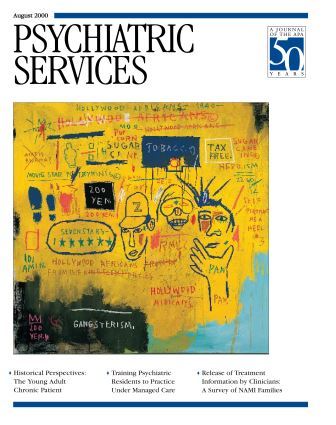The Wandering Womb: A Cultural History of Outrageous Beliefs About Women
This is an outrageous book about a subject potentially important to Psychiatric Services readers. Lana Thompson, a Florida freelance medical writer, does not deliver what she proposes, and she does not begin to address the relevance of beliefs about women for an audience of mental health professionals. The book is written to convey a history of beliefs about the uterus; its nine chapters move chronologically from ancient times to the "postmodern uterus."
Thompson's breezy, tongue-in-cheek style, intended to shock the reader by reporting outrage after outrage, is in itself so outrageous that it is difficult to take the writer seriously. By overstatement and by failure to put beliefs in their cultural and historical perspective, the author discredits herself. She has clearly read many secondary sources from which she extracts in order to prove a thesis: women have always been misunderstood by men. This concept is nothing new.
The author takes a narrow feminist stance, but does not take advantage of serious feminist scholarship. She has excellent, interesting illustrations, but the captions are not researched in a way that draws on knowledge of the historical period or the artist, such as Durer's iconography. The book has a strong antiphysician bias and displays ignorance about the history of medicine.
Thompson states that the book was "written to make people, particularly female people, aware of the tremendous social, psychological, religious, and medical pressures brought to bear upon the uterus as it traveled through history," but as a woman psychiatrist I did not find that it increased my awareness in a valuable way. Alas, the focus on the uterus as emblem of woman does not make a contribution about the psychology of women. A woman patient at a state hospital with whom I had been discussing "women's topics"—for example, her concerns about her children in custody elsewhere—asked what I was reading and picked up The Wandering Womb from my desk. After perusing the drawings with great interest, and reading a bit, she put it down and declared "Holy shit!" That about sums up my opinion too.
Dr. Apfel is associate clinical professor of psychiatry at Harvard Medical School in Boston.



